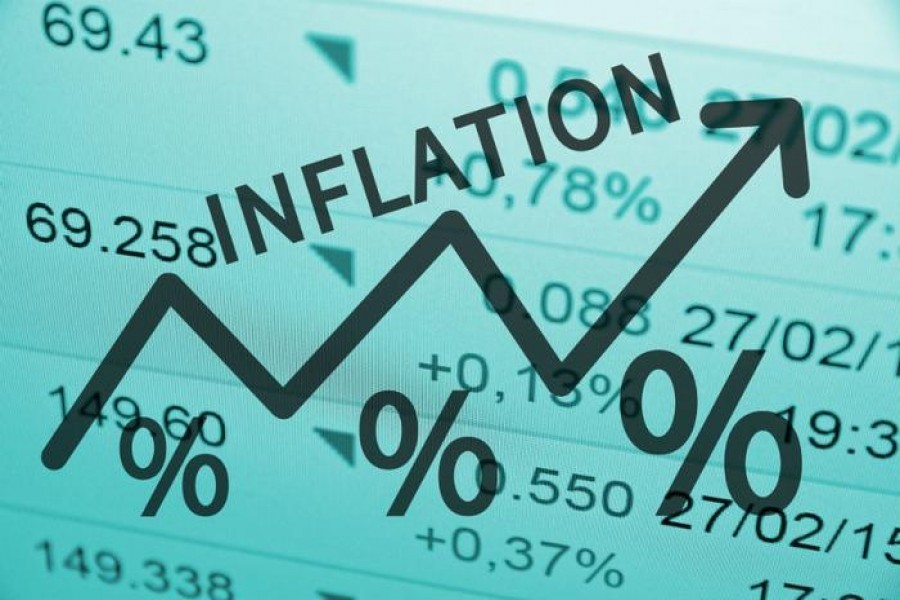The Bangladesh government has adopted an inflation target of 5.2 per cent for the 2022-23 fiscal (FY22-23), a move which seems to be in line with its focus on boosting growth while keeping prices in control.
The inflation target for the current financial year is 5.4 per cent, while its 5.3 per cent for the next fiscal. And according to official documents accessed by UNB, the inflation target for FY22-23 has been set at 5.2 per cent.
Economists believe that inflation needs to be subdued for achieving sustainable long-term growth in any developing country.
In fact, as per the official documents, the inflation in the past five years has been stable and below 6.0 per cent.
According to Bangladesh Bureau of Statistics data, the average annual inflation was 5.65 per cent in the FY19-20, while it was 5.48 per cent in the previous financial year.
Similarly, the average annual inflation was 5.78 per cent in FY17-18, 5.44 per cent in FY16-17, 5.9 per cent in FY15-16 and 6.4 per cent in FY14-15.
Similarly, the 12-month average inflation in May 2020 was 5.6 per cent. Last May, it was 5.5 per cent. Likewise, the point-to-point basis inflation was 5.4 per cent in May 2020 while it had been 5.5 per cent in the same period last year.
Point-to-point food inflation stood at 5.1 per cent in May 2020, indicating a slight slump from November 2019, according to the document. While Covid-19 may try to push food prices high for a few more months, the document says, the inflation could be negated by satisfactory agricultural production.
According to the BBS data, the average annual food and non-food inflation between July 2019 and June 2020 stood at 5.56 per cent and 5.85 per cent, respectively. The point-to-point inflation in June 2020 rose to 6.02 per cent from 5.35 per cent in May mainly due to the coronavirus outbreak-induced price hike of essential food items.
The point-to-point food inflation increased to 6.54 per cent in June from that of 5.09 per cent a month ago. On the other hand, the non-food inflation declined to 5.22 per cent in the same month from 5.75 per cent in May.
In June, the general, food and non-food inflation in the urban areas stood at 6.03 per cent, 7.72 per cent and 5.27 per cent, respectively, which were 4.81 per cent, 3.94 per cent and 5.79 per cent, respectively, in the previous month.
The overall, food and non-food inflation in the rural areas stood at 6.02 per cent, 6.47 per cent and 5.18 per cent, respectively, in June.
In May, the general, food and non-food inflation in rural areas was 5.65 per cent, 5.61 per cent and 5.73 per cent, respectively.
According to the BBS data, the national wage index rate slightly increased to 5.90 per cent in June from 5.89 per cent in May as a result of increasing wages in all three sectors - agriculture, industry and services.
The data shows that the wage index rate for agriculture increased to 6.18 per cent in the same month from 6.16 per cent in May. The wage index rates for industry and services also rose to 5.31 per cent and 5.78 per cent, respectively, in June from 5.29 per cent and 5.75 per cent, a month before.


